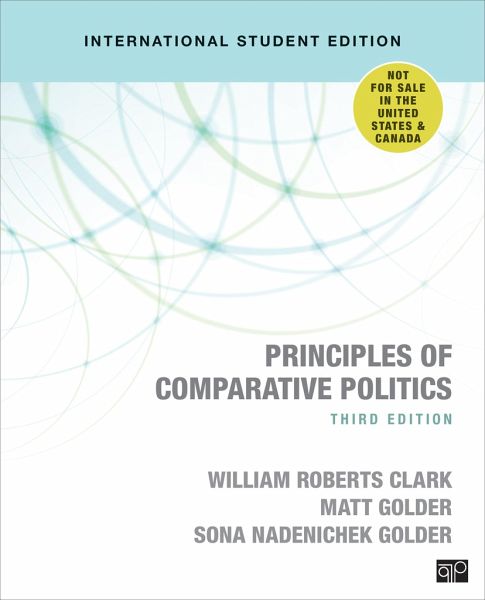
Principles of Comparative Politics (International Student Edition)
Versandkostenfrei!
Versandfertig in 6-10 Tagen
114,99 €
inkl. MwSt.

PAYBACK Punkte
57 °P sammeln!
Principles of Comparative Politics offers the most comprehensive and up-to-date introduction to comparative inquiry, research, and scholarship. In this thoroughly revised Third Edition, students now have an even better guide to cross-national comparison and why it matters. The new edition retains a focus on the enduring questions with which scholars grapple, the issues about which consensus has started to emerge, and the tools comparativists use to get at the complex problems in the field.Updates to this edition include a new intuitive take on statistical analyses and a clearer explanation of ...
Principles of Comparative Politics offers the most comprehensive and up-to-date introduction to comparative inquiry, research, and scholarship. In this thoroughly revised Third Edition, students now have an even better guide to cross-national comparison and why it matters. The new edition retains a focus on the enduring questions with which scholars grapple, the issues about which consensus has started to emerge, and the tools comparativists use to get at the complex problems in the field.
Updates to this edition include a new intuitive take on statistical analyses and a clearer explanation of how to interpret regression results; a thoroughly-revised chapter on culture and democracy that includes a more extensive discussion of cultural modernization theory and a new overview of survey methods for addressing sensitive topics; and a revised chapter on dictatorships that incorporates a principal-agent framework for understanding authoritarian institutions. Examples from the gender and politics literature have been incorporated into various chapters, and empirical examples and data on various types of institutions have been updated. The authors have thoughtfully streamlined chapters to better focus attention on key topics.
Updates to this edition include a new intuitive take on statistical analyses and a clearer explanation of how to interpret regression results; a thoroughly-revised chapter on culture and democracy that includes a more extensive discussion of cultural modernization theory and a new overview of survey methods for addressing sensitive topics; and a revised chapter on dictatorships that incorporates a principal-agent framework for understanding authoritarian institutions. Examples from the gender and politics literature have been incorporated into various chapters, and empirical examples and data on various types of institutions have been updated. The authors have thoughtfully streamlined chapters to better focus attention on key topics.












